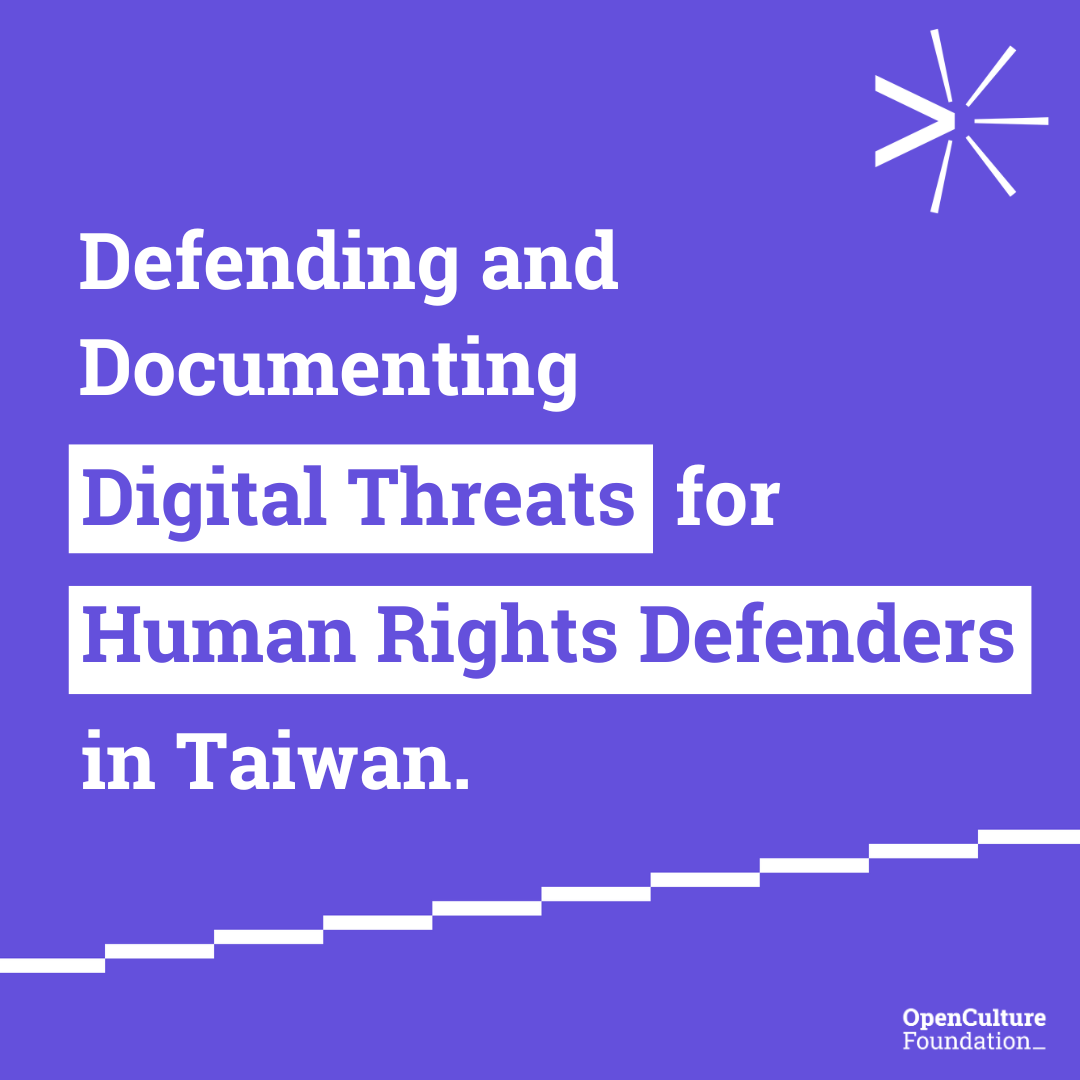
Defending and Documenting Digital Threats for HRDs in Taiwan
Project Background
The flourishing civil society and open environment in Taiwan have established it as a central hub where Human Rights Defenders (HRDs) from around the world convene. However, the potential risks that come along with the HRDs’ advocacy work are rarely discussed and remain undocumented. In recent years, activists in Taiwan have faced increasing targeted attacks by malicious actors, especially the cross-border influences of authoritarian regimes. Our network and existing projects providing digital security services to local HRDs have revealed suspicious signs on the devices of human rights activists. Additionally, some confirmed digital attacks have resulted in damages, including data loss or breaches of accounts.
Despite the severity of the situation, there are only limited resources available to enhance organizational digital security infrastructure. Human rights organizations often operate with minimal manpower and rely heavily on donations or public funding for their operations. The lack of personnel with digital security expertise and the financial constraints hindering the investment in secure hardware leave HRDs vulnerable to potential threats and jeopardizes their work. In Taiwan, there are voluntary groups committed to providing digital security training to human rights civil society organizations. They offer training sessions to equip the HRDs with the basic knowledge and strategies for safeguarding against digital attacks. However, our experience shows that while one-time training programs provide fundamental knowledge of digital attacks, there’s a need for a long-term and customized solution, as each organization operates on a different scale and encounters different challenges.
There are two primary goals of this project:
- Digital Security Mapping for HRDs in Taiwan: Surveys and depth interviews will be conducted to investigate the types and origins of the digital attacks, as well as the damages experienced by HRDs. This research aims to understand the digital infrastructures and address the digital security needs of HRDs.
- Digital Security Toolkit for HRDs: Informed by the research findings, we will craft a comprehensive digital security toolkit tailored to meet the specific requirements of HRDs. The toolkit will be made publicly available for widespread use.
Digital Security Mapping for HRDs in Taiwan
This project is developed with the aim of bridging the gap between the existing services and actual needs of the HRDs in Taiwan. We employed a mixed-methods approach in order to identify the scope of existing digital security risks and explore a holistic approach to mitigate these risks. The project collected questionnaires from 35 HRDs and conducted in-depth interviews with 3 high-risk HRDs who had previous experience with targeted digital attacks. Here are some key findings:
Who are HRDs in Taiwan?
- Most formal organizations have staff sizes under 10 people and consist of a mix of full-time, part-time, interns, or volunteers.
- Interviewed HRDs used multiple tools with similar functions situationally for their operations, which we refer to as a ‘patchwork’ pattern.
What types of digital attacks occurred?
- Foreign authoritarian regimes are considered the primary potential attackers.
- Social media harassment and phishing are the most common types of attacks.
- HRDs expressed greater concern about attacks targeting internal digital infrastructure and data.
Why did digital threats concern the HRDs?
- Most HRDs have little confidence in their preparedness for digital attacks.
- Patchworked digital infrastructure creates additional challenges for effective monitoring and maintenance.
What is in need?
- There is high willingness to participate in externally supported capacity building programs; internal constraints including lack of human resources, skills, and funds are still common obstacles.
- HRDs are seeking sustainable and long-term solutions that will equip them with knowledge, problem-solving skills, and a proactive learning mentality.
If you want to learn more about the scope of digital attacks and the HRDs’ experience, please refer to the full report.
Digital Security Toolkit for HRDs
Based on our findings in the Digital Security Mapping for HRDs in Taiwan, we will develop a digital security toolkit for HRDs in Taiwan. We anticipate that this digital security toolkit will bring sustainable impacts and significantly enhance the digital resilience of HRDs.
If you are interested in learning more about the toolkit and the related materials, please contact Open Culture Foundation via hi@ocf.tw.